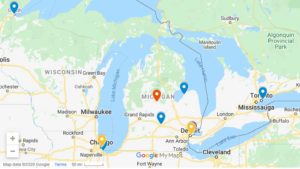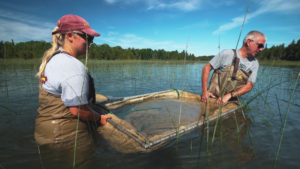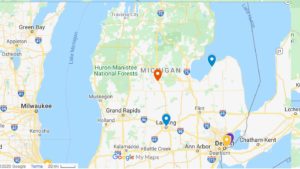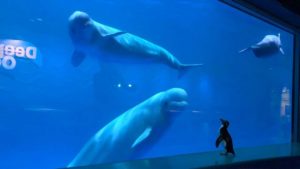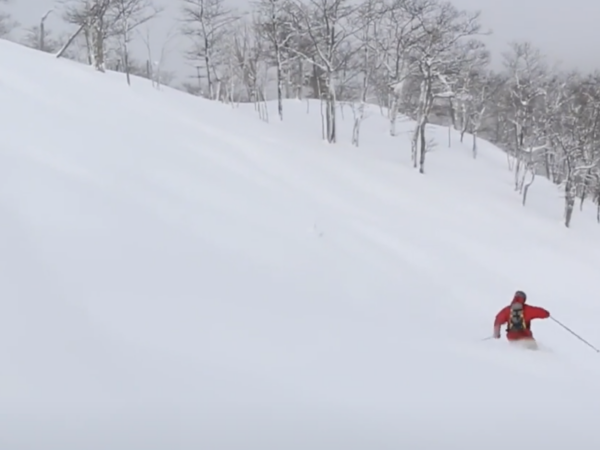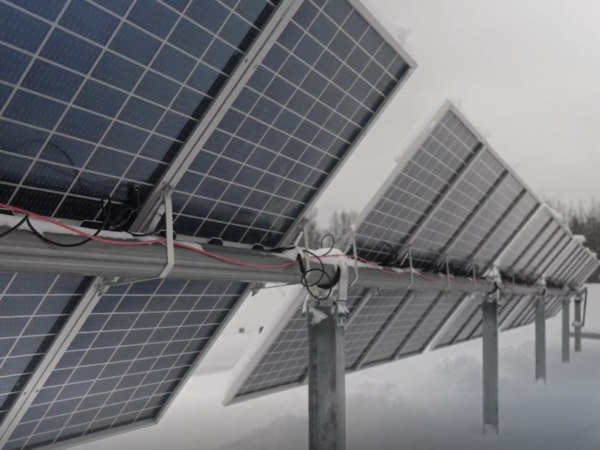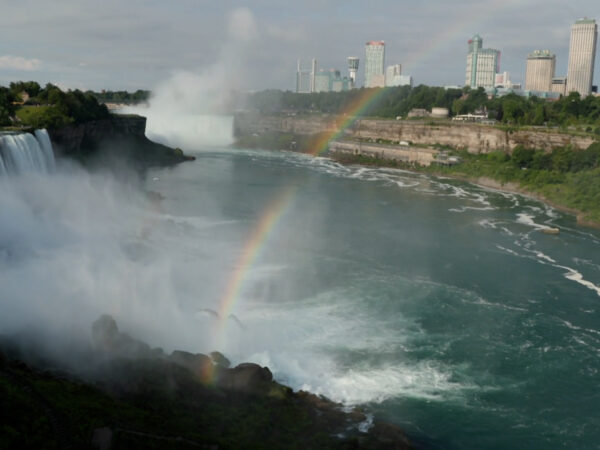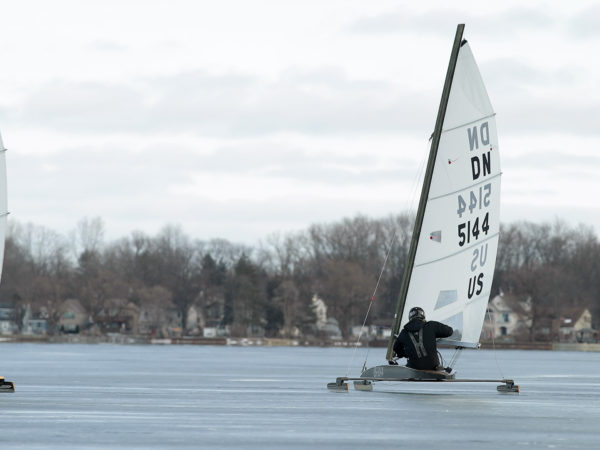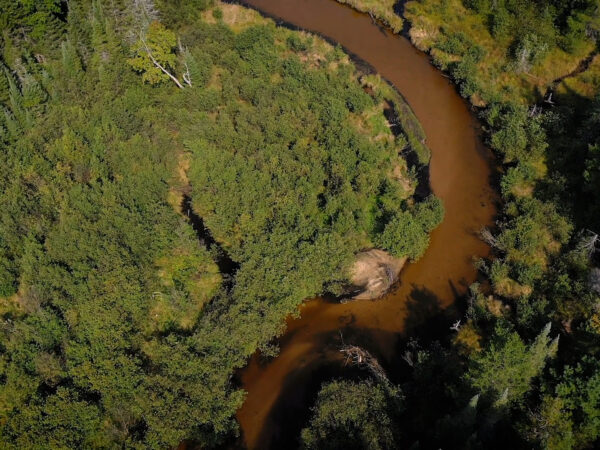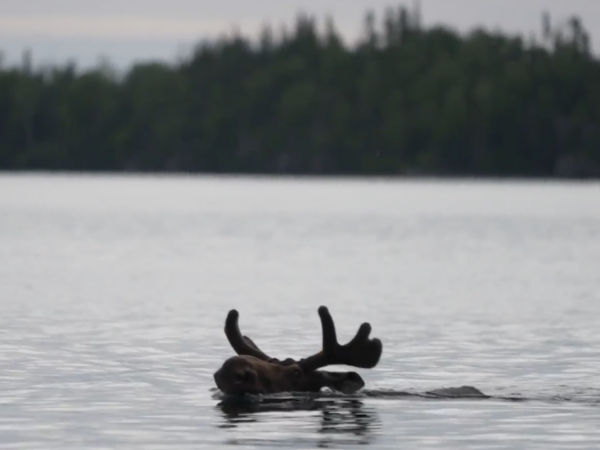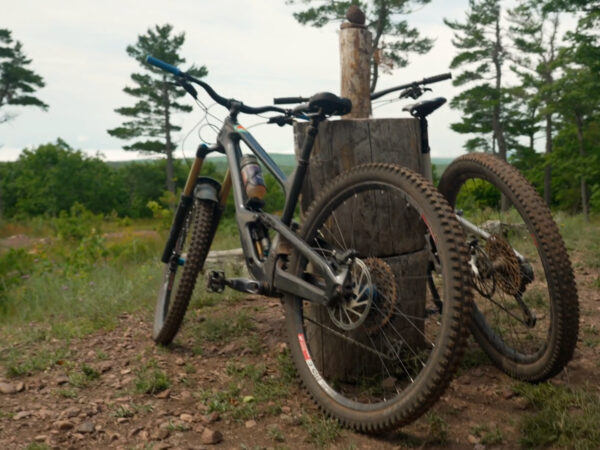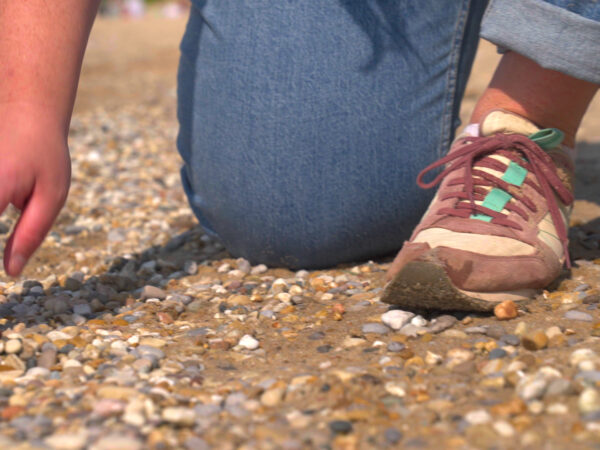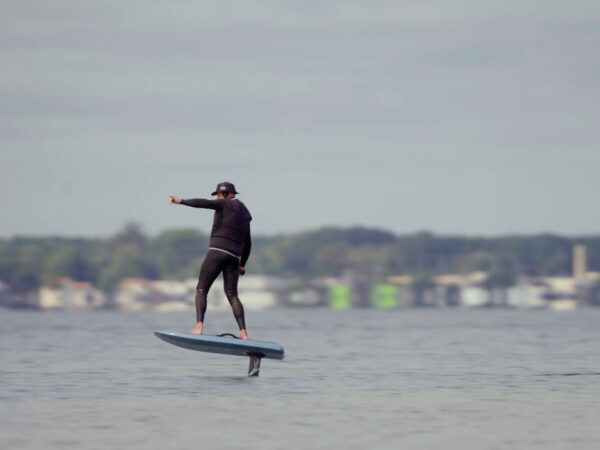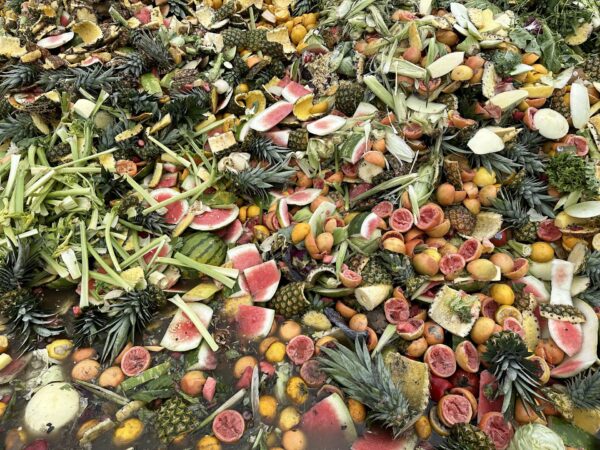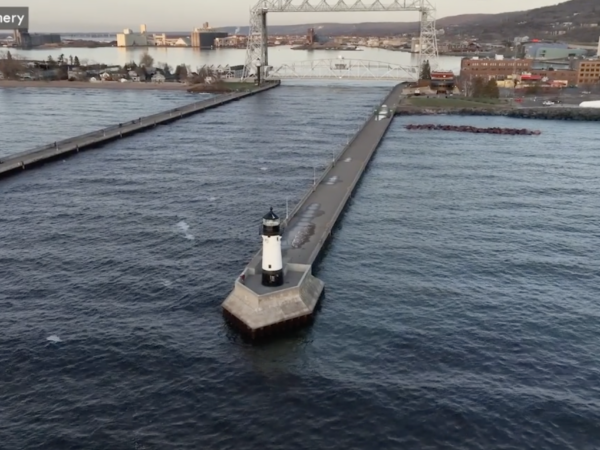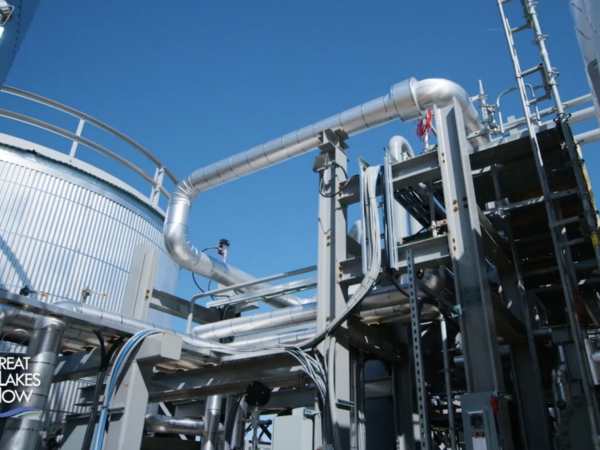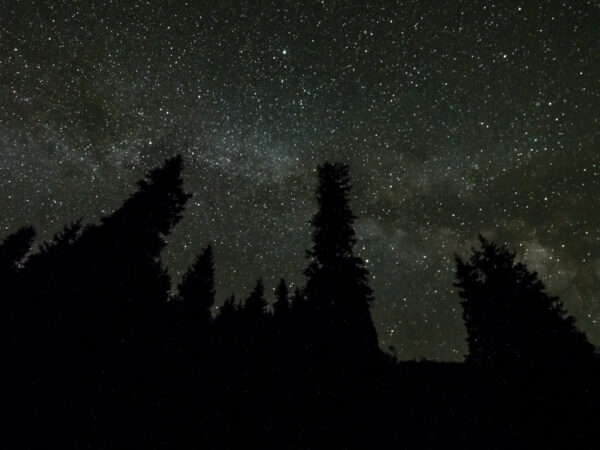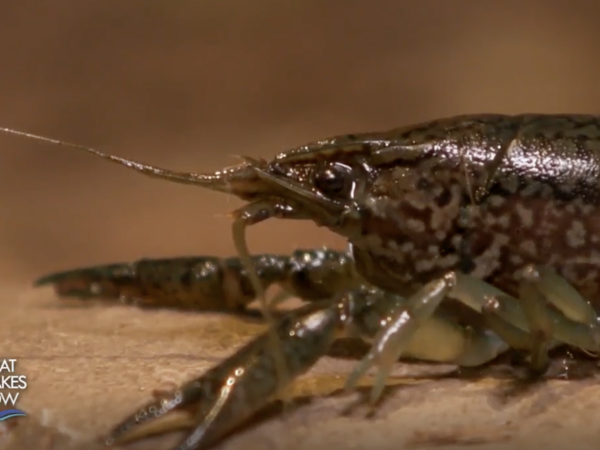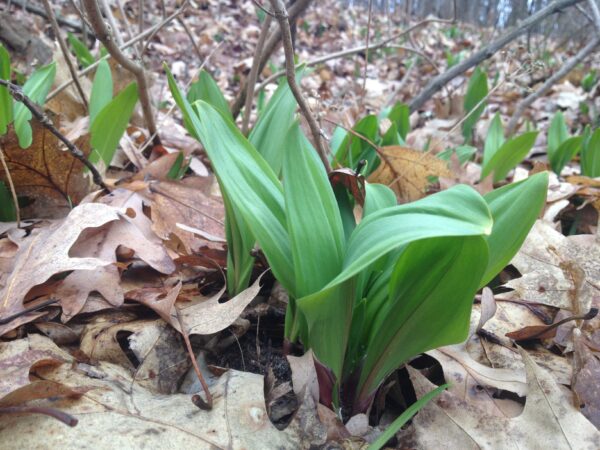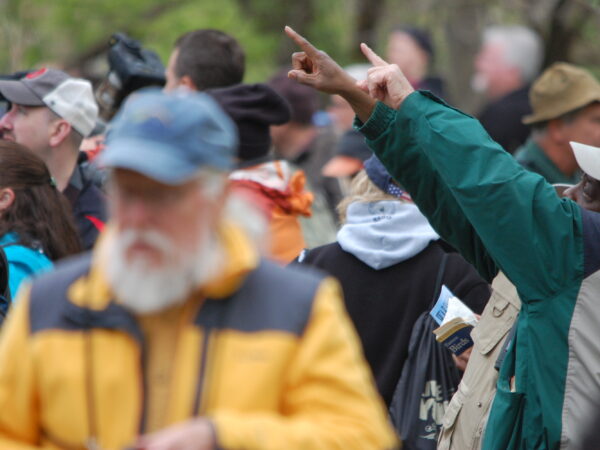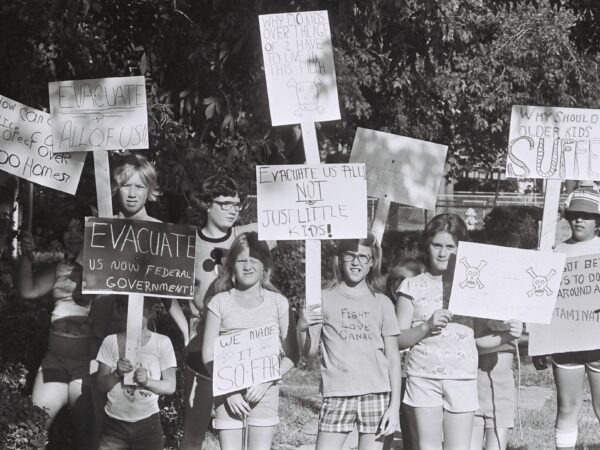The COVID-19 pandemic has changed practically everything about our lives, and that includes work on and around the lakes. Industries from shipping and fishing to tourism and cruising are all affected, and so is scientific research on the lakes’ coastal wetlands.
This month, Great Lakes Now checks in with some of the people we’ve met over the last year — and a few new faces too — to find out how their lives, businesses, and industries are weathering the pandemic and its economic fallout.
We also take you inside several Great Lakes aquariums to see how staff are adapting to new circumstances, and how they’re reaching across the social distance that now separates their visitors from their residents. Who knew that in 2020 the tables would be turned, with all of us staying inside while the penguins finally get to go out?
WHERE WE TAKE YOU IN MAY
Premiered on DPTV
Tuesday, May 26 at 7:30 PM
STATIONS CARRYING THE SERIES
DPTV
Detroit, Michigan
WNEO-TV
Alliance, Ohio
WCML-TV
Alpena, Michigan
WDCP-TV
Bad Axe, Michigan
BCTV
Bay County, Michigan
WBGU-TV
Bowling Green, Ohio
WNED-TV
Buffalo, New York
WCMV-TV
Cadillac, Michigan
WTTW-TV
Chicago, Illinois
WVIZ-TV
Cleveland, Ohio
WKAR-TV
East Lansing, Michigan
WQLN-TV
Erie, Pennsylvania
WCMZ-TV
Flint, Michigan
WGVU-TV
Grand Rapids, Michigan
WGVK-TV
Kalamazoo, Michigan
WNMU-TV
Marquette, Michigan
WMVS-TV
Milwaukee, Wisconsin
WCMU-TV
Mount Pleasant Michigan
WNIT-TV
South Bend, Indiana
WCNY-TV
Syracuse, New York
WGTE-TV
Toledo, Ohio
WDCQ-TV
University Center, Michigan
WNPI-TV
Watertown, New York for Ontario signal
WPBS-TV
Watertown, New York for U.S. signal
Have a question about the Great Lakes or life in the region?
Ask Great Lakes Now, and if we can answer it, we might loop it into our coverage so others can learn too.
Submit Your Question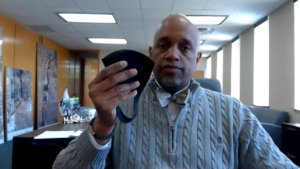
Anyone entering the Illinois International Port District — whether by car, truck, train, boat or barge — during the COVID-19 pandemic is required to wear a face mask. Port Executive Director Clayton Harris III displays his mask during an interview with Great Lakes Now.
Ports and Pandemics
SEGMENT 1 | Chicago, Illinois, Duluth, Minnesota and Superior, Wisconsin, Bay Port, Michigan, Lansing, Michigan, Toronto, Ontario
The COVID-19 pandemic has not spared businesses and industries of the Great Lakes region.
In this segment, Great Lakes Now checked in with people we met in previous episodes of the show to see how they’re coping and what effects the pandemic may continue to have on their operations and summer season.
Dockside:
Ports are taking safety measures to keep from spreading infections, even as they see shipping traffic decline due to the pandemic’s economic fallout.
“We want to make sure that we’re doing everything possible to keep people healthy and safe,” says Clayton Harris III, executive director of the Illinois International Port District. “Even after things open up, I think it’s wise… that we just keep the face masks on for a couple months beyond what’s going on.”
Harris appeared in the Great Lakes Now premiere episode’s “Shipping News” segment. Watch HERE.
Onboard a Fishing Boat:
With processors and restaurants all but closed, the Great Lakes fishing industry faces a hobbled supply chain and a big hit to demand, says Lakon Williams, of the Bay Port Fish Company in Bay Port, Michigan.
“For the future, we’re trying to come up with a plan to only set one net in an area we think will get right around what we need, but we can set ten nets,” she says. “Do I think I can sell 6,000 pounds of fish right now? Absolutely not.”
Williams appeared in the “Net Income” segment. Watch HERE.
Vacation Planning:
Travel and tourism face big uncertainties heading into the peak summer months. But with people reluctant to get on planes, travel in the Great Lakes region could be bolstered by locals staying local.
“People are going to be looking for open spaces, small towns, lesser-known places. Places that aren’t as busy,” says Dave Lorenz, vice president of Travel Michigan. “And that’s OK with us, because we want to keep as many people here as we can.”
Watch the Great Lakes Now segment to learn more about how industries related to the Great Lakes are impacted by the pandemic.
Here is other Great Lakes Now work about the shipping industry:
Fishing and Freighters: Great Lakes industries take COVID-19 economic hit
Shipping Continues: Great Lakes shipping season opens with extra social distancing
As energy use changes in the Great Lakes, so too does the world’s largest freshwater port
Here is other Great Lakes Now work about travel and tourism in the region:
Growing Pains: Big crowds on a little island can bring out the darker side of Great Lakes tourism
Missing Opportunity: States, industry work together to promote outdoor recreation
Cruises Continue Amid COVID-19: Uncertainty mars but doesn’t stop Great Lakes cruises
Cruising the Lakes: Port stops for cruise lines all around the Great Lakes
Find all of Great Lakes Now’s coverage of the COVID-19 pandemic HERE.
Linking Land and Lakes in Quarantine
SEGMENT 2 | Mount Pleasant, Michigan and around the Great Lakes coasts
Record-high water levels have created unique situations in the Great Lakes coastal wetlands that scientists like Don Uzarski are itching to study this summer.
But restrictions related to the COVID-19 pandemic are limiting how researchers can work together to understand conditions in these vital habitats that provide habitat, prevent erosion and act as natural filters.
As director of Central Michigan University’s Institute for Great Lakes Research, Uzarski is one of the primary investigators for the Coastal Wetlands Monitoring Project. Funded by the EPA’s Great Lakes Restoration Initiative, since 2011 the effort has supported scientists and students from U.S. and Canadian governmental agencies and 15 universities who assess the health of the region’s coastal wetlands.
WCMU-TV, based in Mount Pleasant, Mich., produced a full-length documentary chronicling Uzarski’s team’s work. Watch “Linking Land and Lakes” HERE.
The wetlands face a variety of pressures, and this year, the research process itself is threatened by the COVID-19 crisis. Researchers often work and travel in close proximity with each other, but now, procedures and methods may have to change to keep everybody safe.
Watch the Great Lakes Now segment to learn more about how the team is adapting.
Here is other Great Lakes Now work about coastal wetlands:
- Wetland Wisdom: Documentary looks at breakthrough in Great Lakes wetland research
- Research Unknowns: COVID-19 puts Great Lakes field research prep on hold
Find all of Great Lakes Now’s coverage of the COVID-19 pandemic HERE.
In Isolation … At Aquariums
SEGMENT 3 | Brockville, Ontario, Chicago, Illinois, Detroit, Michigan
When most public institutions closed their doors due to social distancing efforts, the buoyant residents of our region’s aquariums still required attention.
Caretakers of these animate museums had the same priority as many of us: they looked for supplies.
“The first thing that crossed our mind was really to stock up on some food items for animals,” says Jennipher Carter, an aquarist at the Aquatarium at Tall Ships Landing in Brockville, Ontario.
As the pandemic progressed, administrators at the Shedd Aquarium in Chicago wanted to offer wildlife encounters for the public through social media.
“We really want to try and provide these real-time videos and insights,” says Johnny Ford, the Shedd’s assistant director of public relations. “We can give a window for people to still see the animals that they love so much and understand that they’re still being really well cared for, even though the aquarium is closed.”
Within days of the shutdown, one penguin, Wellington, made a new friend: a beluga whale.
The video rippled throughout social media, to the delight of caretakers-turned-camera-crew.
“It’s just an opportunity to take them to different parts of the building that usually just are a little too crowded for penguins to do what they want to do,” says Senior Aquarist Eve Barrs,” While we wait for their fan club to return.”
The oldest aquarium in the nation, Detroit’s Belle Isle Aquarium, has its own spin on the animal field trip trend.
Aquarist Amanda Murray thought the Madagascar hissing cockroach deserved its 15 seconds of fame.
“I find that when people are at home wanting to experience the outside, that they are willing to maybe watch videos,” she says.
For more about Wellington, the cockroach and other creatures at Great Lakes aquariums, watch the Great Lakes Now segment.
Here is other Great Lakes Now work about aquariums and museums around the region:
- Animal Quiz: What Great Lakes aquarium animal are you in quarantine?
- Inside Entertainment: COVID-19 has Great Lakes aquariums and museums offering online activities
- COVID-19 Changes: Great Lakes parks and tourist spots are closing, remaining open and waiting for summer
- Board a Ship, See Some Fish, Learn the History: Great Lakes Museums, Aquariums and Forts
Find all of Great Lakes Now’s coverage of the COVID-19 pandemic HERE.
Previous Episodes
Featured Articles
Digital Credits
The Great Lakes Now Series is produced by Rob Green and Sandra Svoboda.


